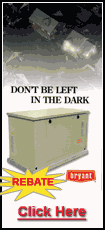|
 "Our products are 100 percent made by us in Japan," Noguchi said. "We have to use top quality materials ... And still customers are pushing us to improve quality." "Our products are 100 percent made by us in Japan," Noguchi said. "We have to use top quality materials ... And still customers are pushing us to improve quality."China's reputation as the world's toy workshop
-- it handles 60 percent of global toy manufacturing -- has taken a battering amid recalls of Chinese-made toys with lead paint or magnets that could be swallowed.
So far, the uproar has had little impact on China's toy exports, which are up 28 percent in the first eight months of the year compared to the same period in 2006.
And while brands like LaQ can't compete with Chinese factories on price, Noguchi admits, the greater focus on improving standards is giving toy importers greater hope of making inroads into this still undeveloped market.

"The potential for the toy market here is huge," said Alice Tang, managing director for AT Licensing & Merchandising Ltd., a Hong Kong-based company that acts as licensing agent for Tezuka Productions and other brands.
Chinese families still tend to spend less on toys for children than parents elsewhere, but with increasing household wealth, demand is growing.
"In China, with the one-child system, they really care. They do care about quality," Tang said. Given the controversies over toy exports from China, and the potential they see in China, she says foreign toy companies are turning their attention to the local market.
"There's a big market on their doorsteps," she said.
Kwon You Kook, vice president of Kidswell Co., a Shanghai-based exporter of tot-sized trampolines and other exercise equipment, says that after years of selling to South Korea, Japan and Europe, he's looking for a dealer in China.
Until recently, Kwon didn't really consider the local market because his prices are too high, he said.
"Our costs are rather high because we have been using plastics, foams and other materials that conform with overseas safety and environmental standards," Kwon said. "Maybe now there will be more of a market for such better quality here."
[to top of second column]
 |
 Chinese officials have defended the quality of the country's toy exports, blaming much of the media uproar on unfair coverage by Western journalists, and some on flaws in designs from Western toy companies.
"There are more orders instead of less. This proves that most of the toys exported by China are qualified," Li Changjiang, head of China's General Administration of Quality Supervision, Inspection and Quarantine, told reporters in Beijing on Wednesday. Li said that, as usual, factory workers were putting in lots of overtime to meet Christmas orders.
The renewed focus on quality has been a mixed blessing for some companies.
Tomy Co., a Japanese maker of toy cars and Barbie-lookalike Licca-chan dolls, had its own China episode: In August, it announced it was recalling Chinese-made toy cars it markets and sells for Mattel in Japan after excess lead was found in the paint.
But after years of contending with rivals that undercut its business by selling counterfeit, inferior versions of its toys, the company is finally seeing stricter enforcement of standards its own manufacturers have been meeting all along, said John Zhu, a senior sales manager for Shanghai Kaleeto Industrial Co., which represents Tomy and other brands in China.

Many toys locally produced and sold in China may have failed to meet safety and other quality standards, but regulations governing imported products have always been rigidly enforced, Zhu said while standing in his company's lavish exhibit at the Shanghai Toy Fair.
The controls are getting tighter: As of June 1, companies that import toys or export made-in-China toys for reimport, to meet Chinese trade regulations, have to acquire so-called "3C," or "China Compulsory Certification."
Companies that already meet such standards stand at an advantage, Zhu said.
"This has been great news for us," he said. "Consumers are paying
attention and demanding higher quality products."
[Associated Press; by Elaine
Kurtenbach]
AP correspondent Audra Ang contributed to this report from Beijing.
Copyright 2007 The Associated Press. All rights reserved. This
material may not be published, broadcast, rewritten or
redistributed. |